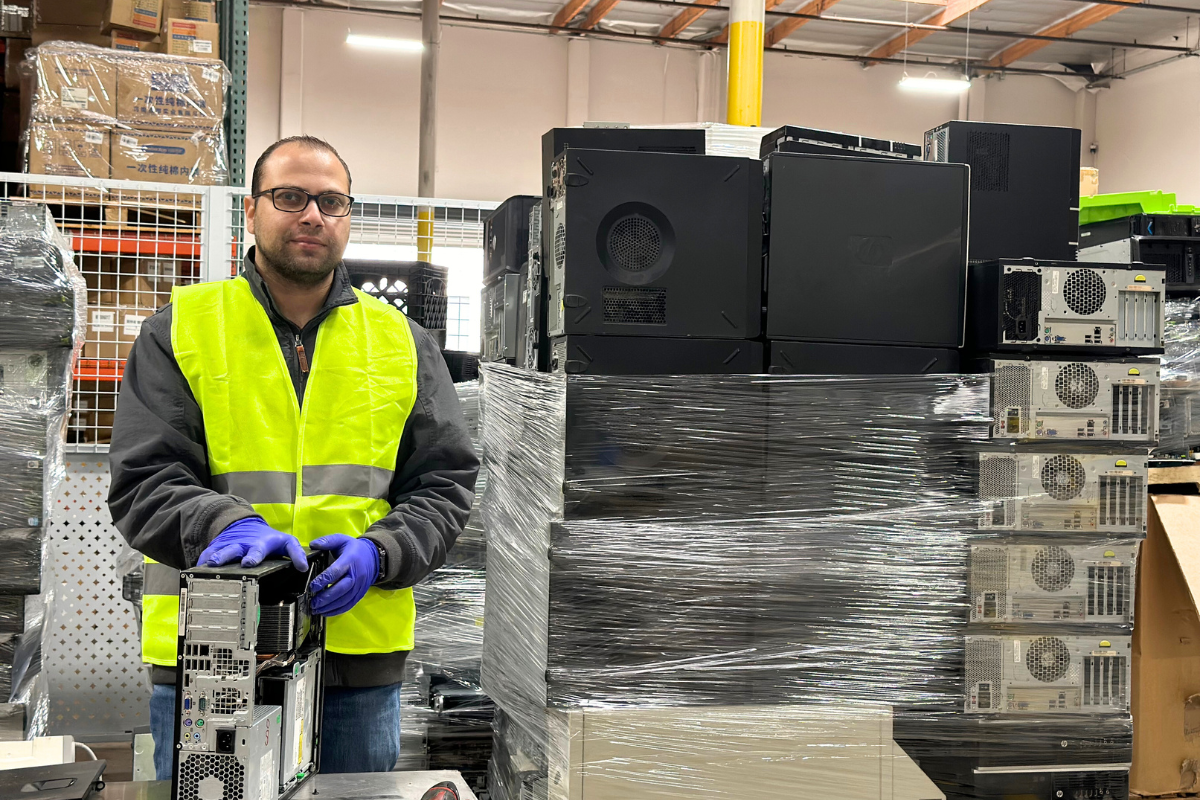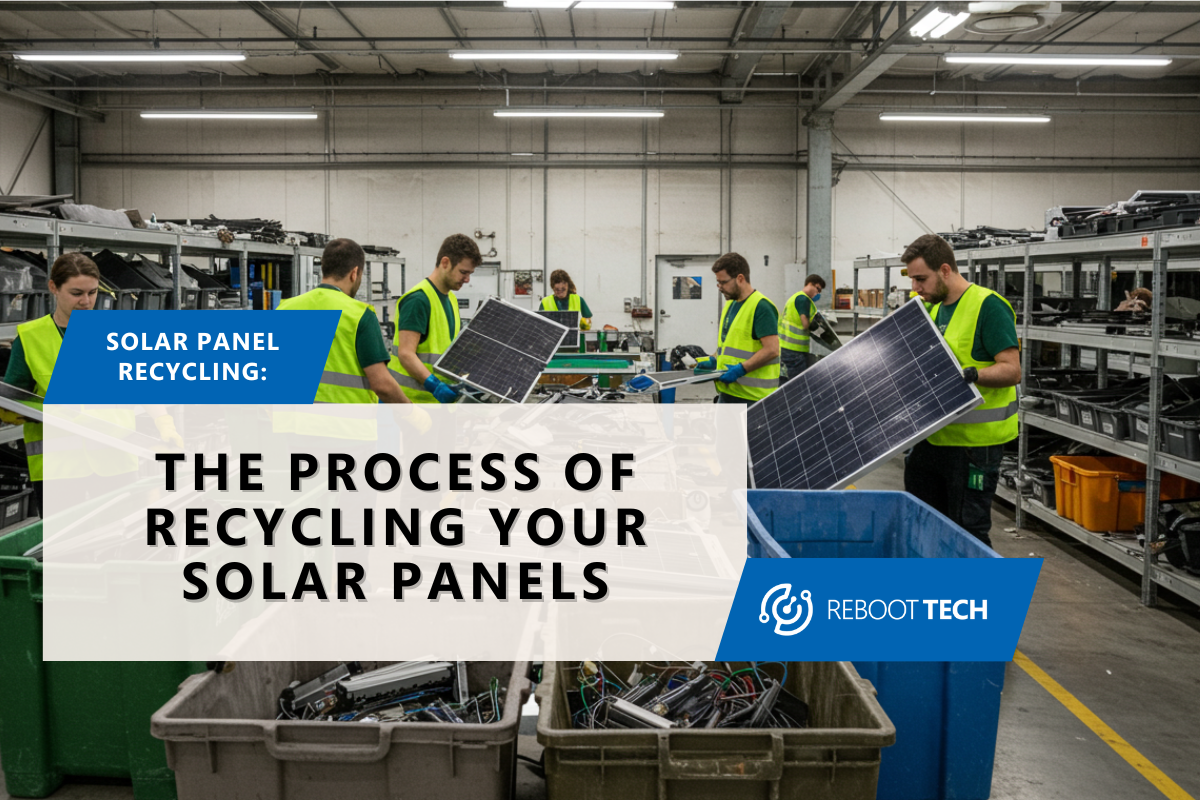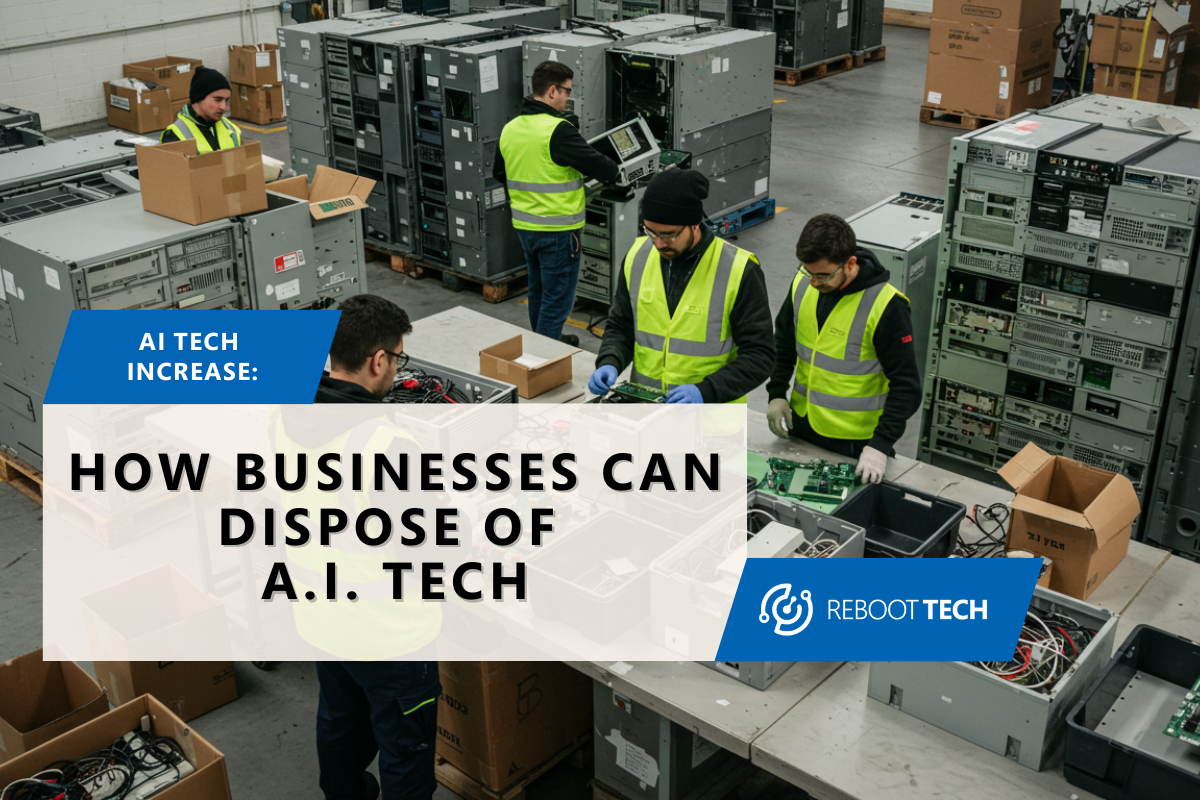
Protecting Our Planet: The Critical Role of Solar Panel Recycling
As the world leans more toward renewable energy, solar panels have become a popular choice for clean energy. But what happens when these panels reach the end of their life span? This is where solar panel recycling comes into play.
Today, we’re diving deep into the importance of recycling solar panels, the challenges, the process, and the significant benefits it brings. By the end of this blog, you’ll understand why proper disposal and recycling of solar panels are crucial for both environmental sustainability and economic growth.
Imagine this: a world where we harness the power of the sun to meet our energy needs, reducing our dependence on fossil fuels and cutting down on carbon emissions. Sounds like a dream, right?
But what happens to those solar panels after they’ve served their purpose? If we’re not careful, the disposal of solar panels could lead to a new environmental crisis. This is why the importance of solar panel recycling cannot be overstated.
In this article, we’ll explore the lifespan of solar panels, what makes them delicate to recycle, and the detailed process of recycling them. We’ll also look at the growing problem of solar panel waste and how recycling can turn this waste into a valuable resource. Lastly, we’ll guide you on where to find companies that can efficiently recycle your solar panels, like Reboot Tech. Let’s get started!
The Role of Solar Panels and the Opportunities of Solar Panel Recycling
Solar panels play a vital role in the global push for clean energy. They convert sunlight into electricity, reducing the need for fossil fuels and decreasing greenhouse gas emissions. However, as more panels are installed, the issue of solar panel waste becomes more pressing.
The International Renewable Energy Agency estimates that by 2030, the cumulative value of recoverable raw materials from end-of-life panels globally will be about $450 million. This opens up vast opportunities for solar panel recycling, which not only conserves valuable resources but also creates jobs and supports the circular economy.
Solar Panel’s Lifespan
Typically, solar panels have a lifespan of about 25 to 30 years. This means that the panels installed during the early 2000s are now reaching the end of their useful life. As the first wave of solar panels approaches retirement, the need for effective recycling solutions becomes more urgent. Without proper disposal, these panels can contribute to hazardous e-waste, polluting the environment and posing health risks.

What Makes Solar Panels Delicate to Recycle?
Solar panels are intricate devices composed of various materials, including aluminum frames, glass, copper wires, silicon solar cells, and a plastic junction box. While materials like aluminum and glass are relatively easy to recycle, others, such as silicon cells and the polymer layers, present significant challenges.
These polymer layers, which protect the panels from weather, require high temperatures to break down, making the recycling process complex and energy-intensive. Moreover, toxic metals like lead and cadmium may be present in some panels, necessitating careful handling and specialized recycling processes to prevent environmental contamination.
The Recycling Process
The recycling process for solar panels involves several steps to ensure that as many materials as possible are recovered and reused. Here’s a breakdown of the typical process:

- Removal of the Frame and Junction Box: The aluminum frame and plastic junction box are removed first. These components are relatively straightforward to recycle and can be processed through standard recycling facilities.
- Separation of Glass and Silicon Wafer: The glass and silicon wafer are separated using thermal, mechanical, or chemical processes. This step is crucial as it allows the recovery of silicon, a valuable material for new solar panels.
- Purification of Silicon Cells and Metals: The silicon cells and specialty metals such as silver, tin, and copper are separated and purified using chemical and electrical techniques. This step ensures that these high-value materials are recovered efficiently.
Despite the complexity, the recycling process for solar panels is continuously evolving. Researchers and industry experts are working to improve the efficiency and cost-effectiveness of these methods to make solar panel recycling more viable on a large scale.
Solar Panel Waste
With the increasing adoption of solar technology, solar panel waste is becoming a significant issue. By 2050, the world could see up to 78 million tons of solar panel waste. If not properly managed, this waste could lead to severe environmental and health problems.
Recycling solar panels not only mitigates these risks but also prevents valuable materials from ending up in landfills. Instead, these materials can be reused to produce new panels, supporting the sustainable growth of the solar industry.
Overall Benefits of Solar Panel Recycling
The benefits of recycling solar panels are manifold. Here are some key advantages:
- Environmental Protection: Proper recycling prevents harmful substances from polluting the environment and reduces the need for raw material extraction, which can be damaging to ecosystems.
- Resource Conservation: Recycling allows the recovery of valuable materials like silicon, aluminum, and copper, which can be reused in new panels or other products.
- Economic Growth: The recycling industry creates jobs and supports the circular economy by turning waste into valuable resources.
- Waste Management: Efficient recycling processes help manage the growing volume of solar panel waste, preventing it from overwhelming landfills.
Where to Find Companies to Recycle Your Solar Panels Efficiently
Finding a responsible recycler for your solar panels is crucial. One such company is Reboot Tech, which specializes in electronic waste recycling, including solar panels. They operate under accredited recycling standards, ensuring that your panels are recycled safely and efficiently. Additionally, you can search for other solar panel recycling options on websites such as Earth911 and the Solar Energy Industries Association (SEIA).
Choosing a recycler that adheres to recognized standards like SERI’s R2 Standard or the e-Stewards standard ensures that the recycling process meets high environmental and safety standards. This not only helps in proper waste management but also supports the development of a sustainable recycling industry.

Responsible Recycling
As we continue to embrace solar energy, it’s essential to address the end-of-life phase of solar panels responsibly. This is a critical component of this process, offering numerous environmental, economic, and resource conservation benefits. By recycling solar panels, we can turn potential waste into valuable resources, supporting the growth of clean energy while protecting our planet.
If you’re a solar panel owner or considering installing solar panels, make sure to plan for their eventual recycling. Reach out to companies like Reboot Tech and others that specialize in solar panel recycling to ensure your panels are disposed of responsibly. Together, we can build a more sustainable future, one recycled panel at a time.
Remember, the importance of recycling solar panels goes beyond waste management—it’s about creating a sustainable, circular economy that benefits everyone. So, let’s take action today and make a positive impact on our environment and economy.





